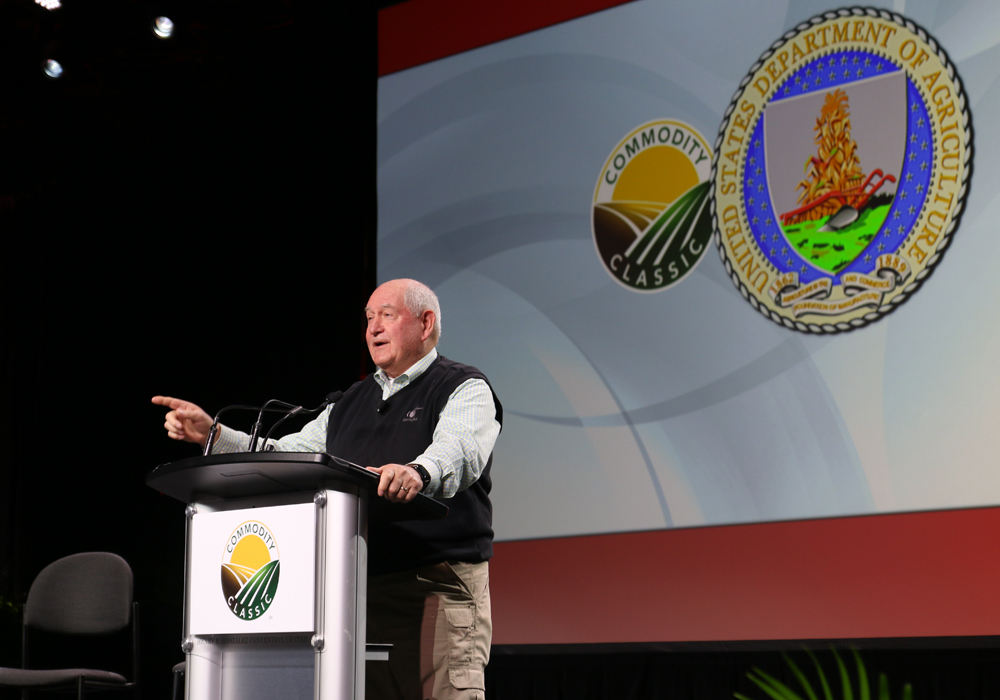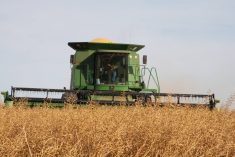SAN ANTONIO, Texas — U.S. Secretary of Agriculture Sonny Purdue kicked off day two of the 2020 Commodity Classic conference with a warning to farmers.
“Don’t make plans in 2020 for another market facilitation program,” he said.
U.S. President Donald Trump authorized US$12 billion in farm aid in 2018 and another $16 billion in 2019.
The subsidies were designed to offset the impact of the U.S. trade war with China. The two countries reached an armistice in late 2019, eliminating trade disruptions.
“In 2020 I’m telling you all to do what you do and plant for the market,” said Purdue.
He told growers that the trade pact with China is going to be a “huge bonanza” to U.S. farmers.
Purdue acknowledged that grain markets have been slow to react to the deal because trade flows have been disrupted by the coronavirus outbreak in China.
“(Investors) want to see ships loaded and unloaded and we will see that,” he said.
He assured growers that China’s commitment to purchase $80 billion of U.S. agricultural commodities is real and it will be strictly enforced.
Read Also

New program aims to support plant-based exports to Asia
Understanding the preferences of consumers in Taiwan and how they differ from Indonesia or Malaysia isn’t easy for a small company in Saskatchewan.
Purdue said he was in the European Union recently and noticed that farmers are growing increasingly frustrated with the inability to use modern agriculture technologies.
“They fear our imports,” he said.
“Europe is going to become a museum of agriculture, not a productive part of agriculture.”
Dan Atkisson, chair of the National Sorghum Producers, told conference growers that it appears as though China is finally back in the market for U.S. sorghum. The commodity has been shut out of China since the trade war erupted.
Polly Ruhland, chief executive officer of the United Soybean Board, announced the new Protein First initiative, which is a collaboration between the United Soybean Board and the USA Poultry and Egg Export Council.
She said it is time for the crop and livestock sectors to stop bashing one another and start working together to grow demand for all types of U.S. protein products.
Ruhland send the plant and animal sectors can work together in markets like India and North Africa to build demand for soybeans and poultry products.
She noted that the beef and pork sectors were not as eager to collaborate.
Pivot Bio announced 2019 performance data for its nitrogen-use-efficiency microbial.
Pivot Bio Proven delivered a 5.8 bushel per acre yield advantage compared to fields using only synthetic nitrogen fertilizer in on-farm trials conducted in 2019.
Similar yield results were achieved at studies conducted at five Midwest land grant universities.
Contact sean.pratt@producer.com


















